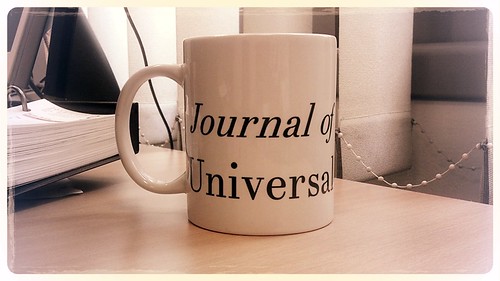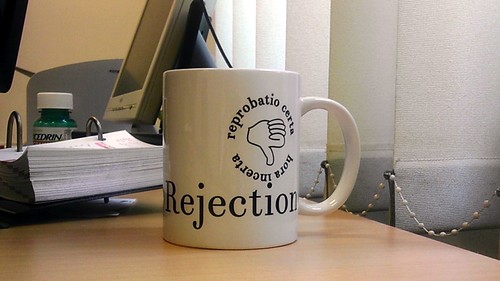Nobody that I know likes rejection. I’ll have to admit that I was very lucky through high school, undergraduate and graduate school. I worked hard, and that work led to high grades (I completed my PhD with an A+ average GPA). I always felt that I was pretty invincible. Then, I had to rewrite a doctoral dissertation because it needed work. After a lot of work, rethinking and rehashing my argument, I obtained my PhD (not without a tonne of effort, tenacity and will to succeed). I suppose that you could say my academic writing was rejected for not being up to the standard up until I got the doctorate.
But I also felt lucky throughout graduate school and as I started my career as an early-career-scholar that I had never actually experienced rejection in the academic writing that I sent out to the world. Paper I submitted for publication to a journal, paper that I got accepted. I had almost a zero rejection rate, for a few years.
This year, my record both in grant writing and in journal article publishing got a bit of a clobbering. I got three grant proposals that I had really put my heart and soul into them (and that I thought were spectacularly well written) rejected. Not by much, mind you. And not because the projects weren’t worthy, but because of budgetary constraints and policy priorities of the granting agencies.
I also had a journal article manuscript fully rejected from a journal and felt devastated. After all, this year I had had pretty much a “accepted-as-is”, a “accepted-with-minor-changes” and an “accepted-with-major-changes-but-essentially-it’s-in”. So the rejection really hurt. And the paper is a really nice analysis that I thought was a slam-dunk, which is what really stung more.
In talking with a number of senior scholars at the International Association for the Study of the Commons (IASC) Conference in Fujiyoshida-shi, Japan, they reminded me of Elinor Ostrom and what she said about rejection letters – they’re part of academia. In fact, when I first met Lin, I do remember that she did say that – something to the extent of “if you only knew the kind of rejection letters I’ve received for my manuscripts!“. So I felt much better. If even Elinor Ostrom got papers rejected (or grants), and look the kind of academic impact she had in the world, I should learn to deal with rejection and accept it as part-and-parcel of academic life.



2 Responses
Stay in touch with the conversation, subscribe to the RSS feed for comments on this post.
Continuing the Discussion